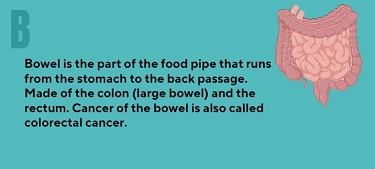Clarify Project, Big Data and AI to improve care for cancer survivors
- The EU-funded CLARIFY project will identify the risk factors that impact cancer patient´s quality of life after oncological treatment by using Big Data and AI. Data from more than 15.000 survivors from breast, lung and lymphoma cancer (the most prevalent types) will be analyzed for this purpose.
- Also, Clarify will develop an innovative platform that supports decision-making of medical doctors to improve the care of cancer survivors.
- 12 entities from 5 countries participate in this international research leaded by Hospital Puerta de Hierro-Majadahonda in Madrid, Spain.
The number of cancer survivors has increased in recent decades due to advances in diagnoses and treatment. Nevertheless, ensuring post-treatment quality of life of survivors remains a challenge.
To answer this problem, the EU-funded CLARIFY Project (Cancer Long Survivor Artificial Intelligence Follow-up) will identify the risk factors that affect patient´s health status after oncological treatment.
“We selected 3 prevalent pathologies with long term survivors, breast, lung and lymphoma cancer”, said Mariano Provencio, Head Medical Oncology Department at Hospital Universitario Puerta de Hierro in Madrid, the Spanish hospital leading the Clarify Project. “Using Big Data and Artificial Intelligence techniques, the project will integrate data from the Electronic Health Records (EHRs) of different hospitals in Spain, relevant publicly available biomedical information, as well as information from wearable devices used after the treatment”, said Provencio.
Data will be analyzed to predict patient-specific risk of developing secondary effects and toxicities from their cancer treatments.
Innovative Platform
Clarify will combine the expertise of partners from 5 different European countries to develop an innovative platform that will support the decision-making of medical doctors to improve the care of cancer survivors.
The consortium, is composed of 12 partners: Hospital Puerta de Hierro-Servicio Madrileno de Salud(Spain); Universidad Politécnica de Madrid (Spain), Technische Informationsbibliothek -TIB- (Germany), Holos Soluções Avançadas em Tecnologias de Informação, (Portugal); National University of Ireland (Ireland), University College London, (United Kingdom), University College Dublin (Ireland), Accenture Global Solutions (Ireland); Grupo Oncológico para el Tratamiento de las Enfermedades Linfoides-GOTEL- (Spain); Stelar Security Technology (Germany), Grupo Español de Investigación en Cáncer de Pulmón- GECP- (Spain); Kronohealth (Spain).
Clarify project is funded by the European Union with 5 million euros, under the Horizon 2020 program (under grant agreement No 875160).
About Cancer Survivors
It was estimated that there were approximately 8.7 million cancer survivors in Europe [1]. Survival rates of cancer patients were rather poor until recent decades, when diagnostic techniques have been improved and novel therapeutic options have been developed. It is estimated that more than 50% of adult patients diagnosed with cancer live at least 5 years in the US and Europe.
Many cancer survivors have unmet needs, especially when it comes to improving the quality of life, in addition to extending the duration of life [2]. At least one quarter of cancer survivors report long-term poor health and disability [3]. Some cancer survivors have levels of fatigue that are three-fold greater than the general population [4], and many carry a life-long fear of cancer recurrence [5]. Returning to work is also difficult for many cancer survivors, with one recent global survey reporting that more than one-third of employers described concerns about workplace discrimination against cancer survivors [6].
“Often, cancer survivors are left unchecked and not followed up properly after the end of the acute treatment phase. It is important to develop national plans to ensure that the healthcare system can fully support cancer survivor’s needs”, said Dr Maria Torrente, from Dr Provencio´s team at Puerta de Hierro Hospital.
This situation leads to a new challenge: to increase the cancer patients’ post-treatment quality of life and well-being. “Long cancer survivors need medical and non-medical care to maintain their independence and maximize their quality of life”, stated, Dr Torrente.
References
- Rossi, P. Baili, R. Capocaccia, M. Caldora, E. Carrani, P. Minicozzi, D. Pierannunzio, M. Santaquilani, A. Trama, C. Allemani, A. Belot, C. Buzzoni, M.Lorez, R. De Angelis, EUROCARE-5 Working Group. The EUROCARE-5 study on cancer survival in Europe 1999–2007: database, quality checks and statistical analysis methods
- Armes, M. Crowe, L. Colbourne, H. Morgan, T. Murrells, C. Oakley, N. Palmer, E. Ream, A. Young, A. Richardson. Patients’ supportive care needs beyond the end of cancer treatment: a prospective, longitudinal survey
- Macmillan Cancer Support. Cured-but at What Cost: Long-term Consequences of Cancer and its Treatment. Macmillan Cancer Support, London (2015)
- Henry-Amar, R. Busson. Does persistent fatigue in survivors relate to cancer? Lancet Oncol., 17 (2016).
- Thewes, P. Butow, R. Zachariae, S. Christensen, S. Simard, C. Gotay. Fear of cancer recurrence: a systematic literature review of self-report measures. Psychooncology, 21 (2012).
- K. Zeltzer, Q. Lu, W. Leisenring, J.C.I. Tsao, C. Recklitis, G. Armstrong, A.C. Mertens, L.L. Robison, K.K. Ness. Psychosocial outcomes and health-related quality of life in adult childhood cancer survivors: a report from the childhood cancer survivor study. Cancer Epidemiol. Biomarkers Prev., 17 (2008).
Follow us online:
CLARIFY website: http://www.clarify2020.eu
Twitter:@Clarify2020
